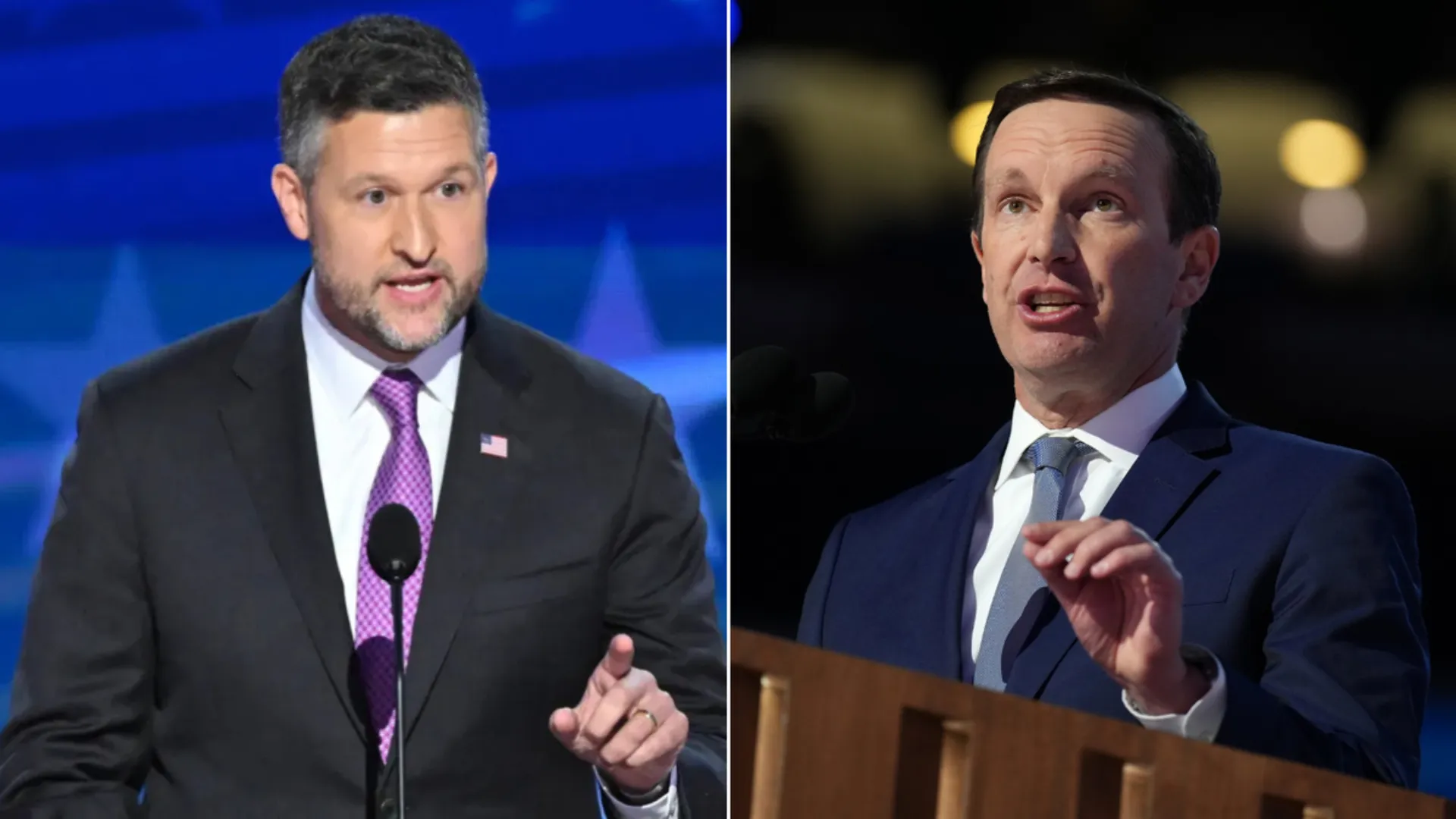
The disclosure of a national security breach involving the Trump administration has sent shockwaves through Congress. The incident, involving an unintentional leak of sensitive military information through a Signal chat, has sparked intense outrage among lawmakers, prompting calls for investigations, disciplinary actions, and potential legal consequences for those involved.
The leak, which exposed high-level discussions regarding airstrikes in Yemen, has ignited debates about the integrity of government communications and the safety of U.S. servicemembers and national security.
On Monday, Jeffrey Goldberg, the editor-in-chief of The Atlantic, revealed that he had accidentally been included in a Signal chat involving some of the highest-ranking officials in the Trump administration. The conversation, which centered on military airstrikes targeting the Houthi rebels in Yemen, was far from ordinary.
It provided Goldberg access to sensitive military strategies, details about weaponry, and the timing of operations that were intended to be kept confidential. What followed was an eruption in Congress, as lawmakers from both political parties expressed outrage at the security breach.
Members of Congress, including both Democrats and Republicans, were quick to voice their anger over the breach. Rep. Chris Deluzio (D-Pa.), a member of the Armed Services Committee, called the leak “an outrageous national security breach” and demanded that “heads should roll.” Deluzio stressed the importance of a thorough investigation and swift hearings, urging the House Armed Services Committee to take immediate action.
“This is an embarrassment to the nation,” he declared, emphasizing the need for a full inquiry into how such sensitive information was mishandled.
Rep. Sara Jacobs (D-Calif.), another member of the Armed Services Committee, was equally vocal in her criticism. “We can’t chalk this up to a simple mistake,” she said. “People should be fired for this.”
Jacobs, like many of her colleagues, was alarmed by the apparent ease with which sensitive national security information had been shared on an unsecured messaging platform. The breach raised serious concerns about the security protocols in place to protect U.S. military operations and classified data.
According to Goldberg’s report, the Signal chat included 18 participants, among them key figures such as Defense Secretary Pete Hegseth, National Security Adviser Michael Waltz, and Vice President JD Vance. These individuals are among the most powerful and influential officials in the Trump administration.
Yet, despite the sensitive nature of the discussions, the chat took place on Signal, an encrypted messaging app that is not approved for the transmission of classified government communications. The inclusion of an editor from The Atlantic in such a high-level conversation has raised serious questions about the administration’s handling of classified information.
The details shared in the chat were nothing short of alarming. They included specific information about military targets, operational plans, and the timing of airstrikes. According to National Security Council spokesperson Brian Hughes, the thread appears to be authentic, but he also acknowledged that an “inadvertent number” had been added to the chat.
While Hughes defended the coordination displayed in the chat as an example of “deep and thoughtful policy coordination,” he conceded that the situation was problematic. He further claimed that the success of the Houthi operation demonstrated that no threats to U.S. servicemembers or national security had resulted from the leak.
However, critics were quick to point out the flaws in this defense. Rep. Don Bacon (R-Neb.), a member of the Armed Services Committee and a former Air Force brigadier general, was blunt in his assessment of the situation. While acknowledging that mistakes do happen—“I’ve accidentally sent the wrong person a text. We all have”—Bacon emphasized that the real issue was the use of non-secure networks to transmit sensitive military information.
“None of this should have been sent on non-secure systems,” he stated. Bacon went on to highlight the risks posed by adversaries like Russia and China, suggesting that they could have easily intercepted such information, which was transmitted over unsecured platforms.
In the aftermath of the leak, lawmakers from both sides of the aisle have called for a thorough investigation into how this breach occurred. Some, like Rep. Mike Lawler (R-N.Y.), have emphasized the need for safeguards to ensure that such a mistake does not happen again.
“Safeguards must be put in place to ensure this never happens again,” Lawler wrote in a post on X (formerly Twitter). Others, like Rep. Derrick Van Orden (R-Wisc.), have gone further, arguing that if the leak was accidental, there should be some form of “administrative accountability” for the officials involved, such as retraining. If the leak was intentional, however, Van Orden believes that “legal accountability” should follow.
The controversy over the breach also raised the question of whether resignations might be warranted. While some members of Congress have suggested that the officials involved should step down, House Speaker Mike Johnson (R-La.) took a more defensive stance.
“The administration has acknowledged it was a mistake,” Johnson said, suggesting that the necessary steps would be taken to prevent future breaches. He downplayed the significance of the leak, arguing that the administration would simply “tighten up” its procedures to ensure it does not happen again.
Despite this, other lawmakers, including Sen. Mark Warner (D-Va.), who serves as the top Democrat on the Senate Intelligence Committee, were far more critical. Warner tweeted that the administration was “playing fast and loose with our nation’s most classified info,” and argued that the leak had made all Americans less safe. Warner’s concerns were echoed by Rep. Jim Himes (D-Conn.), who sits on the House Intelligence Committee.
Himes announced plans to press the issue during an upcoming hearing, suggesting that if a lower-ranking official had committed the same error, they would likely have lost their security clearance and faced a criminal investigation.
The security breach involving the Trump administration is not an isolated incident, nor is it the first time that concerns have been raised about the handling of classified information. Over the past few years, there have been multiple instances of leaks and security lapses within the U.S. government.
Each of these incidents has raised questions about the protocols in place to safeguard sensitive national security information and the consequences for those who fail to adhere to them.
The breach involving the Signal chat also underscores the increasing reliance on digital communication platforms for official government business. While apps like Signal offer encryption, they are not secure enough for sensitive government communications.
The use of such platforms for discussing military operations and national security matters raises serious concerns about the potential for future leaks and the need for tighter security measures.
As Congress continues to grapple with the fallout from the Signal leak, one thing is clear: the breach has exposed serious vulnerabilities in the U.S. government’s handling of classified information. The fact that such sensitive military details could be shared over an unsecured messaging platform is a stark reminder of the risks posed by technological advancements and the need for stricter security protocols.
The calls for accountability and investigation from both Democrats and Republicans reflect the gravity of the situation. Whether the breach was an innocent mistake or a deliberate act, it is clear that the consequences could be far-reaching.
The ultimate test will be whether the U.S. government can learn from this incident and take the necessary steps to safeguard its national security moving forward. With lawmakers on both sides of the aisle demanding action, the message is clear: security breaches of this magnitude cannot be tolerated, and those responsible must be held accountable.





